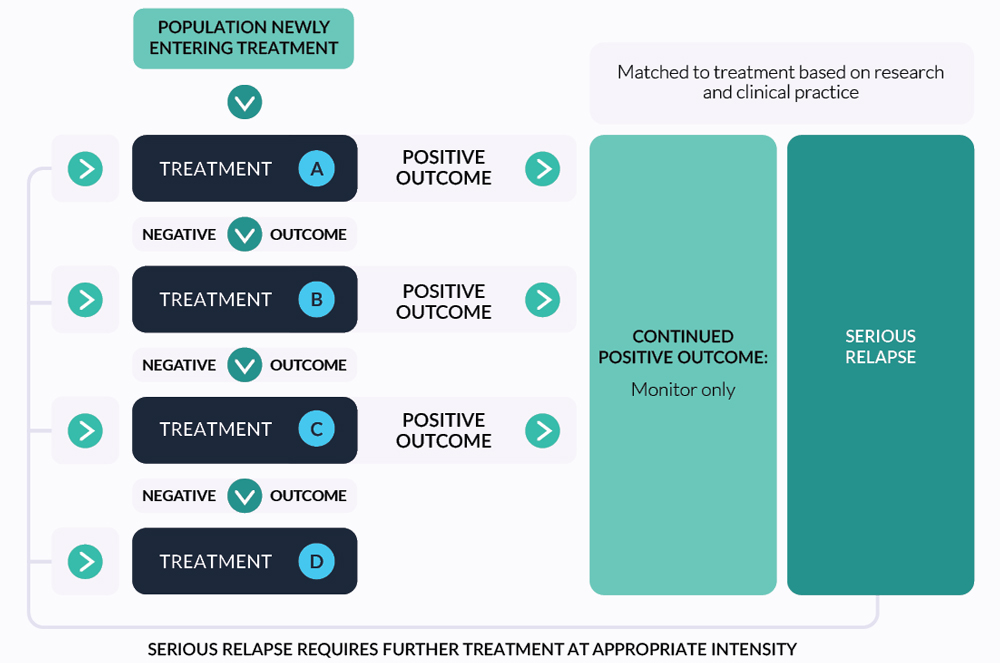Stepped-Care Approach
A stepped-care approach (Figure 5.2), which serves as a guide to clinical decision-making and treatment planning, is proposed. Stepped-care identifies that patients should first be offered the intervention most appropriate to their presentation; if that proves insufficient to achieve the patient’s agreed treatment goals, the next level of intensity of treatment should be offered until the desired treatment goals are achieved. Determining the level of intervention the individual needs is based on a thorough assessment and sound clinical judgement (see Chapter 4). The appropriate level of intensity of treatment is commenced and the patient’s progress is monitored and reviewed. The patient’s response to treatment determines the next step, which could be either continued monitoring of progress or, in the absence of clear benefit, stepped up intensity of treatment. For example, ambulatory withdrawal management should be considered first, reserving inpatient withdrawal for complex cases or treatment failure.
FIGURE 5.2: Stepped care approach for delivering health care services

Source: Sobell, MB & Sobell, LC 2000. ‘Stepped care as a heuristic approach to the treatment of alcohol problems’. Journal of Consulting and Clinical Psychology, vol 68, no. 4, pp. 573-79
While limited evidence supports application of the stepped-care approach, it has sound ‘face validity’ in selecting treatment approaches and is an efficient use of resources. The stepped-care approach is proposed here as an adjunct to decision-making and does not replace clinical judgement and expert advice.
| Chapter |
Recommendation |
Grade of recommendation |
| 5.1 |
Stepped-care may provide a useful adjunct to decision-making but does not replace clinical judgement and expert advice. |
GPP |
| 5.2 |
Stepped-care may be a cost-effective approach to initiating treatment. |
GPP |